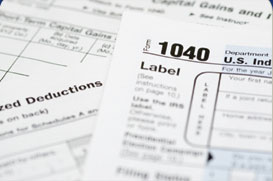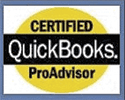
(760) 765-0343

Record Retention Guide for Businesses
In business, good recordkeeping is essential not only for tax reporting purposes but also for the success of the company. The guidelines below give retention periods for the most common business records. Call us if you'd like more information or assistance with your record retention program.
| Accounting Records | Retention Record |
| Accounts payable | 7 years |
| Accounts receivable | 7 years |
| Audit reports | Permanent |
| Chart of accounts | Permanent |
| Depreciation schedules | Permanent |
| Expense records | 7 years |
| Financial statements (annual) | Permanent |
| Fixed asset purchases | Permanent |
| General ledger | Permanent |
| Inventory records | 7 years (Permanent for LIFO system) |
| Loan payment schedules | 7 years |
| Purchase orders (1 copy) | 7 years |
| Sales records | 7 years |
| Tax returns | Permanent |
| Bank Records | Retention Period |
| Bank reconciliations | 2 years |
| Bank statements | 7 years |
| Cancelled or substitute checks | 7 years (Permanent for real estate purchases) |
| Electronic payment records | 7 years |
| Corporate Records | Retention Period |
| Board minutes | Permanent |
| Business licenses | Permanent |
| Bylaws | Permanent |
| Contracts | major Permanent |
| Contracts | minor Life + 4 years |
| Insurance policies | Life + 3 years (Check with your agent. Liability for prior years can vary.) |
| Leases/mortgages | Permanent |
| Patents/trademarks | Permanent |
| Shareholder records | Permanent |
| Stock registers | Permanent |
| Stock transactions | Permanent |
| Employee Records | Retention Period |
| Benefit plans | Permanent |
| Employee files (ex-employees) | 7 years (Or statute of limitations for employee lawsuits) |
| Employment applications | 3 years |
| Employment taxes | 7 years |
| Payroll records | 7 years |
| Pension/profit sharing plans | Permanent |
| Real Property Records | Retention Period |
| Construction records | Permanent |
| Leasehold improvements | Permanent |
| Lease payment records | Life + 4 years |
| Real estate purchases | Permanent |
Julian Office: 4367 Highway 78, Ste. 112, Santa Ysabel, CA 92070 (760) 765-0343 (760) 765-0150 Fax
San Diego Office: (By Appointment Only) 3751 37th St., #2, San Diego, CA 92105 (619) 283-7113 (619) 284-7113 Fax
Correspondence: P.O. Box 1934, Julian, CA 92036 E-mail: rebecca(at)luerscpa.com jan(at)luerscpa.com
San Diego Office: (By Appointment Only) 3751 37th St., #2, San Diego, CA 92105 (619) 283-7113 (619) 284-7113 Fax
Correspondence: P.O. Box 1934, Julian, CA 92036 E-mail: rebecca(at)luerscpa.com jan(at)luerscpa.com



© 2010 Luers & Dyer, CPA, LLP. All Rights Reserved.


Website Design: été advertising & design